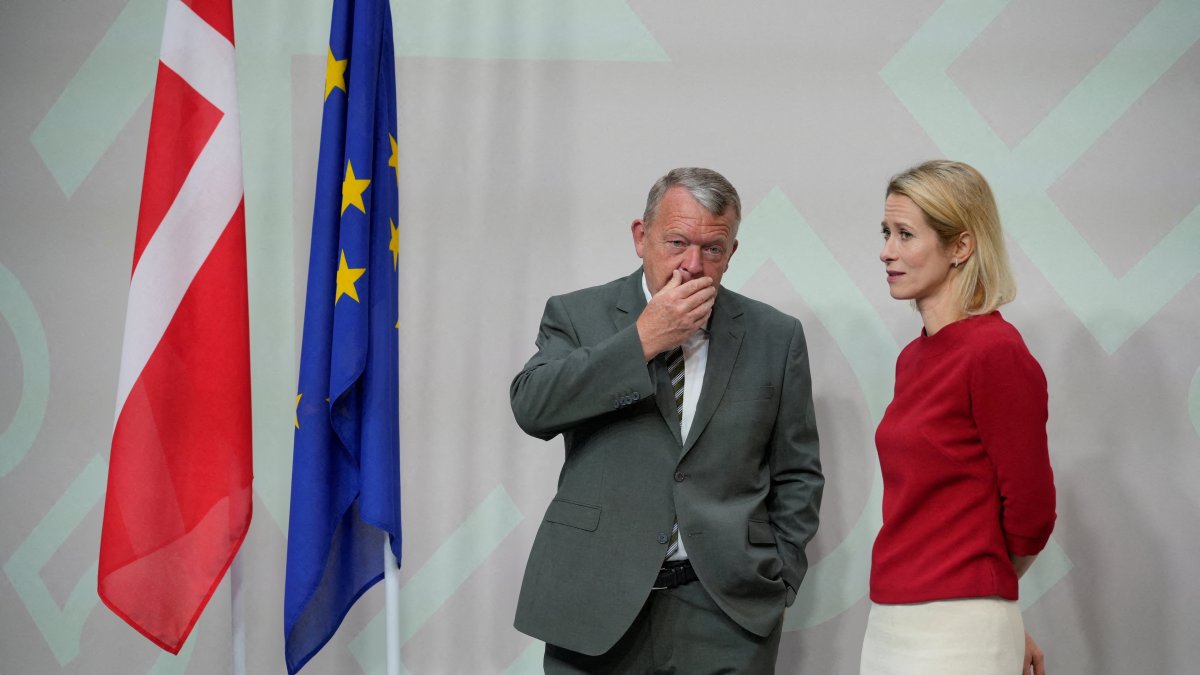European Union foreign ministers met in Copenhagen on Saturday but remained sharply divided over how to take measures against Israel over its war on Gaza, with some calling for the EU to apply strong economic pressure on Israel while others made clear they were unwilling to go that far.
“We are divided about this issue,” Kaja Kallas, the EU’s foreign policy chief, said as she arrived for a meeting with the ministers in the Danish capital Copenhagen.
“If you don’t have a unified voice… on this topic, we don’t have a voice on the global scene. So that’s definitely very problematic,” she said.
Kallas said she was “not very optimistic” that ministers could agree even on a proposal she described as lenient, as it is less severe than other options, to curb Israeli access to an EU research-funding programme.
Israel’s brutal offensive, launched in response to the October 7, 2023, attack on Israel by Palestinian group Hamas, has brought to the surface deeply rooted differences among the EU’s 27 countries on the Middle East.
Many EU governments have criticized Israel’s conduct of the war, particularly over deaths of civilians and restrictions on humanitarian aid. But they have been unable to agree on impactful EU political or economic action.
Countries, including Ireland, Spain, Sweden and the Netherlands, have called for the suspension of an EU free trade pact with Israel. But traditional allies of Israel, such as Germany, Hungary and the Czech Republic, have rejected such steps.
“If the EU does not act as a collective now and take sanctions against Israel, whenever will it? What more could it possibly take? Children are starving,” said Irish Foreign Minister Simon Harris.
Famine finding
A global hunger monitor that works with the United Nations and major aid agencies said last week it had determined there was famine in Gaza. Israel rejected its findings.
The European Union is Israel’s biggest trading partner, with trade in goods between the two amounting to 42.6 billion euros ($49.9 billion) last year, according to the EU.
German Foreign Minister Johann Wadephul said Berlin had made clear that Israel had to respect humanitarian principles in its war that claims is against Hamas and that Germany had suspended delivery of weapons that could be used in Gaza.
But he said Germany was “not very convinced” by the proposal to curb Israeli access to EU research funds, questioning how suspending such civilian cooperation that he described as sensible would be useful.
European Commission officials say they proposed the measure to send an initial signal to Israel and because it does not need unanimity to pass. Support from 15 countries would be enough if they represent 65% of the EU population.

The Daily Sabah Newsletter
Keep up to date with what’s happening in Turkey,
it’s region and the world.
SIGN ME UP
You can unsubscribe at any time. By signing up you are agreeing to our Terms of Use and Privacy Policy.
This site is protected by reCAPTCHA and the Google Privacy Policy and Terms of Service apply.
